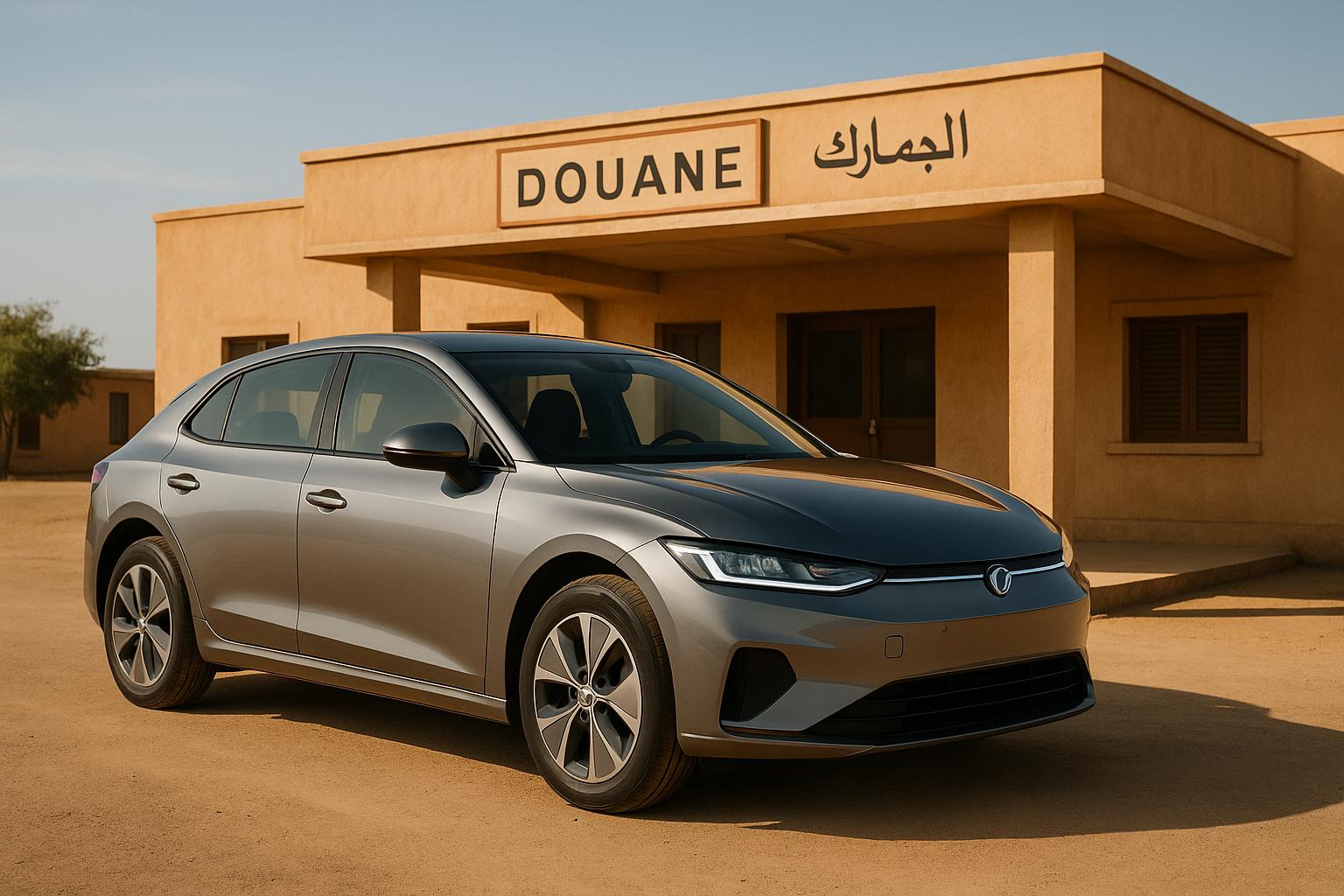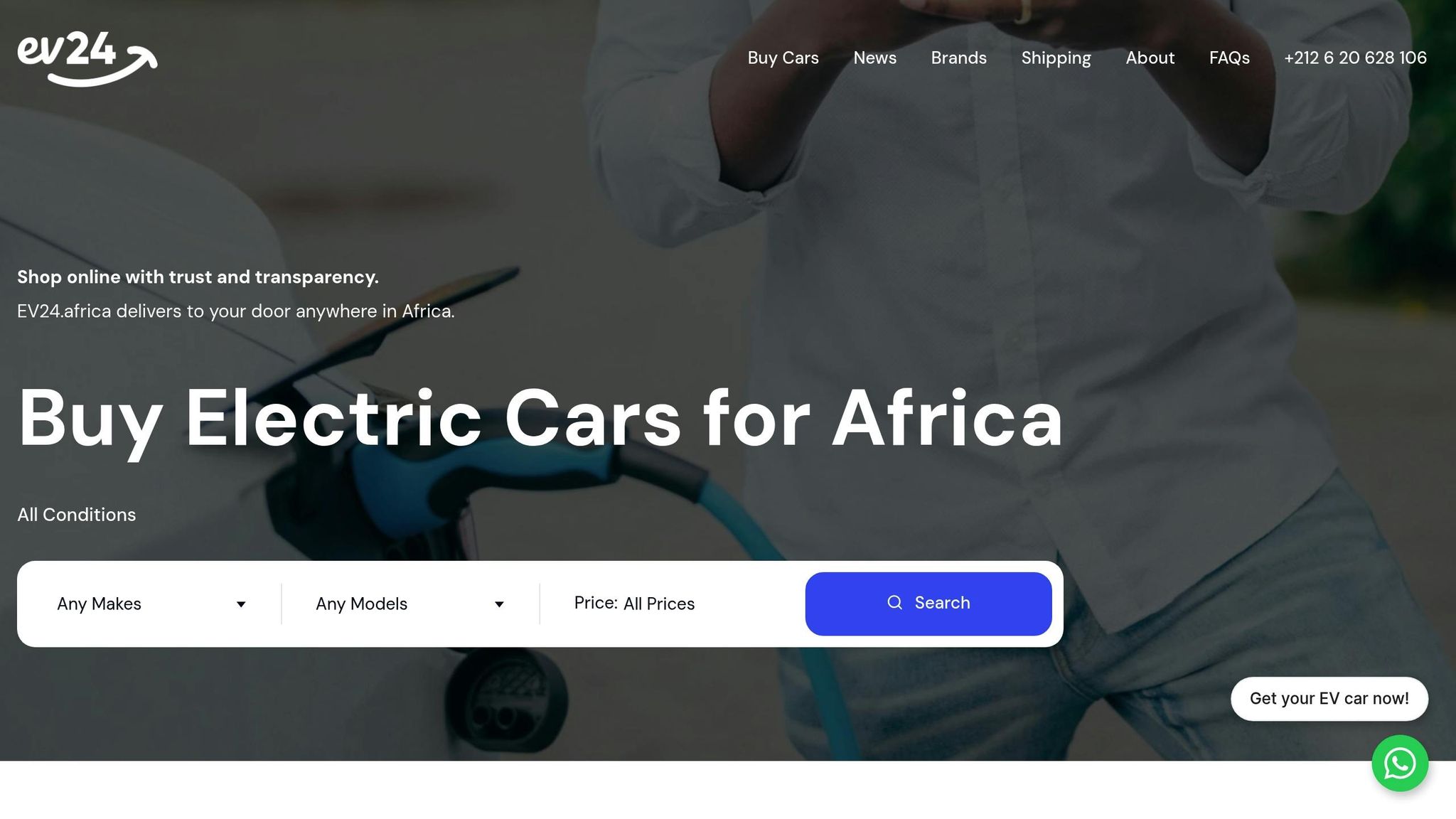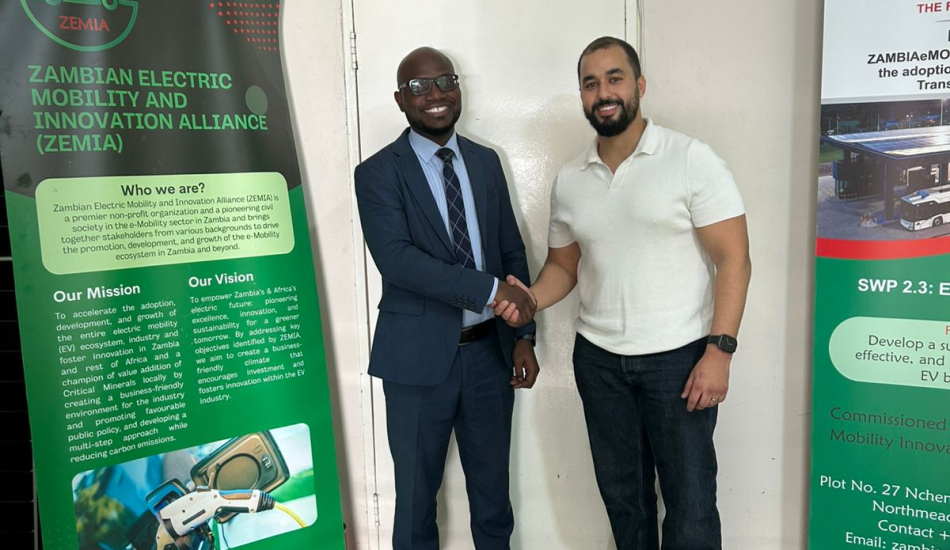
If you’re considering importing an electric vehicle (EV) to Chad in 2025, here’s what you need to know:
- EVs Are Gaining Popularity in Africa: Sales doubled in 2024, with around 11,000 EVs sold across the continent. While Chad is still developing its EV policies, interest is growing.
- Advantages of EVs: Lower operating costs, no reliance on gasoline, and reduced emissions. Some African countries, like Ethiopia, have even banned petrol and diesel car imports.
- Challenges to Consider: High initial costs due to import duties, taxes, and shipping fees. Battery performance and replacement costs also add complexity.
- Legal Requirements: Importers need documents like a bill of lading, proof of ownership, and safety certifications. Used EVs may face additional inspections.
- Customs Fees: Import duties, VAT, and other charges apply. Some incentives may reduce costs for fully electric models.
- Registration: EVs must meet Chad’s safety and emission standards, with fees based on the vehicle’s value.
For a smoother process, platforms like EV24.africa offer end-to-end services, including sourcing, shipping, customs clearance, and registration support. With government incentives reducing import costs by 30–40% this year, now is a good time to explore EV options.
EV Revolution: The Ultimate Guide to Shipping and Importing Electric Vehicles from China
Legal and Regulatory Requirements
If you’re planning to import an electric vehicle (EV) into Chad, you’ll need to navigate a few essential legal steps and ensure the vehicle meets the country’s EV standards.
Required Documentation
The first step in importing an EV is gathering the necessary paperwork. Here’s what you’ll need:
- Bill of lading: This document serves as proof of the vehicle’s shipment.
- Proof of ownership: Either the vehicle title or a certificate of origin will suffice.
- Battery safety certifications: These confirm that the EV’s battery system adheres to recognized safety standards.
Accuracy is key – double-check all documents to avoid delays or complications.
Age and Condition Restrictions
Chad categorizes imported EVs as either new or used, and the rules differ for each. New EVs generally face fewer hurdles, while used ones might require additional inspections or incur extra fees depending on their age and condition. Importers must show that used EVs meet the necessary safety and operational standards.
Safety and Labeling Standards
Imported EVs must align with Chad’s safety and labeling requirements. While specific regulations can vary, your vehicle must include proper safety features and clear labels with essential details. To ensure compliance, it’s wise to consult local regulations or seek advice from knowledgeable professionals.
With legal and regulatory requirements in place, the next step is understanding customs procedures to calculate import costs.
Customs Procedures and Import Costs
Once you’ve gathered all the necessary paperwork, the next step is navigating Chad’s customs clearance process while keeping an eye on the associated costs. Proper preparation here can save you from delays and unexpected fees.
Customs Clearance Process
Clearing customs in Chad requires a set of essential documents, including a commercial invoice, packing list, bill of lading, certificate of origin, and a conformity certificate. These documents ensure smooth processing and compliance with local regulations.
Hiring a clearing agent who knows Chad’s customs requirements can be a game-changer. Once your electric vehicle (EV) is declared, an inspection will confirm details like battery specifications, VIN (Vehicle Identification Number), and the year of manufacture. Afterward, you’ll need to pay the applicable fees to release your vehicle.
It’s also critical to familiarize yourself with the duty structure ahead of time so you can plan your budget accordingly.
Breakdown of Duties and Taxes
Understanding the costs involved in importing an EV is essential for budgeting. Import duties often make up a significant portion of the total costs. These duties are calculated as a percentage of the vehicle’s declared value, with the exact rate depending on Chad’s policies and the vehicle’s specific features.
In addition to duties, a value-added tax (VAT) is applied to the vehicle’s total value, which includes the import duties. You may also encounter other charges like processing fees, inspection fees, and documentation costs.
Under certain circumstances, you might qualify for import duty waivers or incentives tied to environmental programs. However, these opportunities depend on current policies, which can change over time.
Tips to Minimize Import Costs
There are several ways to reduce your overall expenses when importing an EV into Chad:
- Ensure your vehicle’s valuation is accurate to avoid inflated taxes.
- Double-check that all required documentation is complete and, if needed, translated into French.
- Stay informed about potential changes to import policies by consulting with local authorities.
- Partner with experienced shipping companies and clearing agents who specialize in vehicle imports. Their expertise can help you sidestep common mistakes and delays.
Registering an Imported EV in Chad
Once your EV clears customs, the next step is registering it with local authorities. This ensures your vehicle is legally approved for road use, receives license plates, and has the necessary insurance coverage.
Registration Process
Begin by providing proof of customs clearance and ownership at your local vehicle registry. This step confirms that your EV complies with Chad’s regulations. Additionally, make sure to obtain the required insurance, which is not only a legal necessity but also provides important protection.
Registration Fees and Taxes
The cost of registration depends on the declared value and specifications of your EV. These fees typically include both initial and recurring annual payments. For accurate and up-to-date information, consult local authorities or work with a reliable clearing agent.
Meeting Local Standards
Before starting the registration process, double-check that your EV complies with Chad’s safety and emission standards. Having all the necessary documentation in order will help avoid unnecessary delays.
sbb-itb-99e19e3
How EV24.africa Simplifies EV Importation

EV24.africa makes importing electric vehicles (EVs) to Chad a straightforward process, handling everything from sourcing the ideal car to delivering it right to your doorstep. With their streamlined approach, they take the hassle out of navigating the complexities of EV importation.
Sourcing EVs through EV24.africa
EV24.africa provides access to a vast selection of over 200 EV models from 50 manufacturers. This includes well-known brands like Tesla, BYD, Volkswagen, XPeng, Leapmotor, Changan, Wuling, Mercedes-Benz, Citroën, and Peugeot. It’s a lineup that offers options you won’t typically find locally.
One of the standout features of EV24.africa is its commitment to transparent pricing. They provide upfront quotes without hidden fees, making it easier to plan your budget and avoid unpleasant surprises. So far, the platform has processed over 350 qualified vehicle requests from more than 30 African countries, demonstrating their experience in meeting diverse import needs. Each vehicle listing includes detailed specifications, helping you choose a car that fits your preferences and is suitable for Chad’s roads.
"At EV24.africa, we simplify the process of importing and buying electric vehicles in Africa. Our expertise ensures a seamless, transparent, and stress-free experience, so you can focus on driving the future of mobility."
- EV24.africa
Once you’ve selected your EV, EV24.africa takes care of delivery and provides ongoing support to ensure a smooth experience.
Delivery and Support Services
After you’ve picked your EV, EV24.africa manages the entire delivery process, including logistics and aftercare. They offer two main shipping options – Roll-on/Roll-off (RoRo) and Container Shipping – helping you choose the best method based on your vehicle type, budget, and timeline. For customers in Chad, vehicles are typically shipped through major African ports and then transported overland as needed. Throughout the process, you’ll receive real-time tracking updates, so you always know where your car is.
EV24.africa’s support doesn’t stop at shipping. They also handle customs clearance and assist with local registration, ensuring compliance with Chad’s import regulations. This eliminates the need to work with multiple service providers, saving you time and effort.
| Shipping Method | Best For | Key Advantages | Considerations |
|---|---|---|---|
| RoRo Shipping | Operational vehicles | Lower cost, faster processing, frequent departures | Only for running vehicles; limited protection |
| Container Shipping | Non-operational vehicles or multiple cars | Higher protection; suitable for non-running vehicles | Higher cost, longer processing |
Financing and Payment Options
Understanding that buying an EV is a significant investment, EV24.africa offers flexible financing options to make the purchase more manageable. These options allow you to spread the cost over time, accommodating different financial situations. This is particularly helpful since the total cost often includes not just the vehicle but also shipping, customs duties, and registration fees.
"EV24.africa is the next major step in driving the future of electric mobility in Africa, making EVs more accessible and ensuring that buyers across the continent can find, finance, and receive their electric vehicles with ease."
- Africar Group & AUTO24.africa
Conclusion
This guide highlights the essential steps for successfully importing electric vehicles (EVs) to Chad in 2025 – from meeting legal requirements and planning costs to managing documentation with precision. With regulations evolving and compliance support improving, the process has become more manageable. However, success hinges on three key factors: adhering to legal standards, budgeting carefully, and maintaining accurate records. Skipping any of these steps could result in severe consequences, including costly modifications, fines, or even vehicle seizure.
Government incentives in 2025 offer a 30–40% reduction in import costs compared to 2024, making this an ideal time to import fully electric vehicles. It’s important to note that these incentives generally apply only to 100% electric models, meaning hybrid vehicles may not qualify for the same tax breaks.
When selecting an EV, importers should prioritize models with a minimum range of 250 km to handle rural routes effectively. For used EVs, obtaining a battery health certificate is crucial. These considerations emphasize the importance of choosing vehicles that meet Chad’s import regulations and transportation needs.
"Vehicles entering the United States that do not conform with U.S. safety standards must be brought into compliance, exported, or destroyed." – U.S. Customs and Border Protection
This quote serves as a reminder of the universal importance of compliance. Non-conforming vehicles face significant risks, such as forced modifications, exportation, or destruction.
Given the complexities of customs procedures and registration requirements, expert guidance can make a world of difference. Services like EV24.africa provide valuable support, helping importers avoid costly mistakes and ensuring a smoother process from purchase to registration.
With thorough preparation and professional assistance, importing an EV to Chad in 2025 can be a seamless step toward embracing sustainable transportation.
FAQs
Are there any government incentives in Chad for importing electric vehicles in 2025, and how can they help lower costs?
Electric Vehicle Import Policies in Chad for 2025
As of now, Chad does not offer any government incentives specifically aimed at importing electric vehicles (EVs) in 2025. Unlike some other regions that provide perks like VAT reductions or purchase subsidies to encourage EV adoption, Chad has yet to implement similar programs.
To stay ahead of any potential changes, it’s a good idea to keep an eye on updates from Chad’s customs authorities or consult with local import specialists. Even without incentives, understanding the current customs fees and registration requirements can help you better plan and manage the costs associated with bringing EVs into the country.
What steps should I take to ensure my used electric vehicle meets Chad’s safety and operational standards before importing?
To make sure your used electric vehicle aligns with Chad’s safety and operational standards, start by confirming that it complies with international safety regulations like the Federal Motor Vehicle Safety Standards (FMVSS). You’ll need to secure a Certificate of Conformity or equivalent documentation as proof.
Next, review Chad’s specific import regulations. For instance, used electric vehicles are generally required to be no older than 3 years. Verify that the vehicle meets local safety and environmental standards to avoid complications, such as delays or fines, during the import process. Seeking advice from a professional well-versed in Chad’s import laws can also be incredibly helpful.
What challenges and costs should I consider for battery performance and replacement when importing electric vehicles into Chad?
One of the biggest hurdles with electric vehicle (EV) batteries is ensuring their performance and reliability over time, especially in diverse climates. For instance, extreme heat – like the kind often experienced in Chad – can reduce a battery’s efficiency and shorten its lifespan. On top of that, sourcing materials like lithium and cobalt can be tricky. Supply chain disruptions can influence both the availability and quality of these crucial components.
Another consideration is the replacement cost of EV batteries, which can run into several thousand dollars depending on the vehicle model. These costs are largely driven by the expense of raw materials and the specialized techniques needed for recycling and disposal. If you’re thinking about importing an EV, make sure to account for these potential expenses. Looking into warranties or service plans could help offset some of the financial risks down the road.




